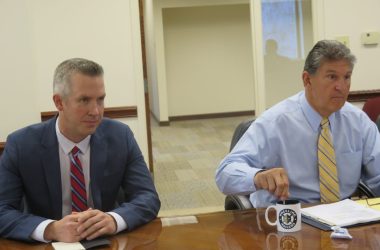From The Herald-Dispatch of Huntington:
Among many topics he covered in his first State of the State speech, West Virginia Gov. Jim Justice emphasized his vision for boosting the state’s ailing economy. One of his points was that the state’s Department of Environmental Protection would have a change of attitude, one that no longer emphasizes “no” from that regulatory body when it comes to dealing with new and existing businesses in the state.
That in general is a good guideline to follow, showing the business world that its presence is indeed welcome in the state.
Part of that has to do with the level of regulations on the state’s books, but another aspect is the way state officials and employees interact with business representatives. They should, of course, be professional, not antagonistic, and they should do all they can to help business representatives understand and successfully navigate the requirements set down by law and regulations. And, as Justice seemed to emphasize, any employees whose appearance and attire do not meet standards of professionalism and are suitable to their duties should change their ways. After all, an employee’s appearance reflects upon the organization he or she represents.
But state regulatory agencies still have an obligation to enforce the rules, and a balance should be maintained between supporting the protections prescribed by law and regulations and being as helpful as possible to business.
Advocacy groups for protecting the environment have voiced their concerns over Justice’s remarks, and a couple of recent factors give them some reason to be worried.
While the governor maintains that the DEP too often says “no,” a recent report by the U.S. Department of the Interior’s Office of Surface Mining raises questions about how effectively the DEP is doing part of its job. After a three-year investigation, the Office of Surface Mining says the DEP has persistently failed to enforce state rules governing the coal-mining industry. Cited were a lack of proper water quality monitoring, poor oversight of reclamation standards and inconsistent efforts to ensure mountaintop removal doesn’t cause localized flooding, according to the Charleston-Gazette Mail.
Then, two weeks after Justice became governor, the DEP eliminated from a streamlined permit for compressor stations and some other facilities used in the natural gas industry language that stated such operations “shall not create a nuisance to the surrounding community by way of unreasonable noise and light during operations,” the Gazette-Mail reported. Agency records show the change was made in direct response to a request from the West Virginia Oil and Natural Gas Association, the newspaper reported. Environmental groups called the move a “huge disservice” to people living near such gas-industry facilities.
Justice’s emphasis on being agreeable to business and industry also is complicated by his companies’ history with regulators. For example, in 2016, the federal Environmental Protection Agency settled thousands of water pollution violations by Justice’s Southern Coal for $900,000 in fines and $5 million in environmental improvement measures.
We agree wholeheartedly that state regulating agencies should not have an antagonistic approach to business – that they indeed should do all they can to assist business. But that should not include ignoring or eliminating the safeguards that are in place to protect the state’s environment and the people who live in the Mountain State.




